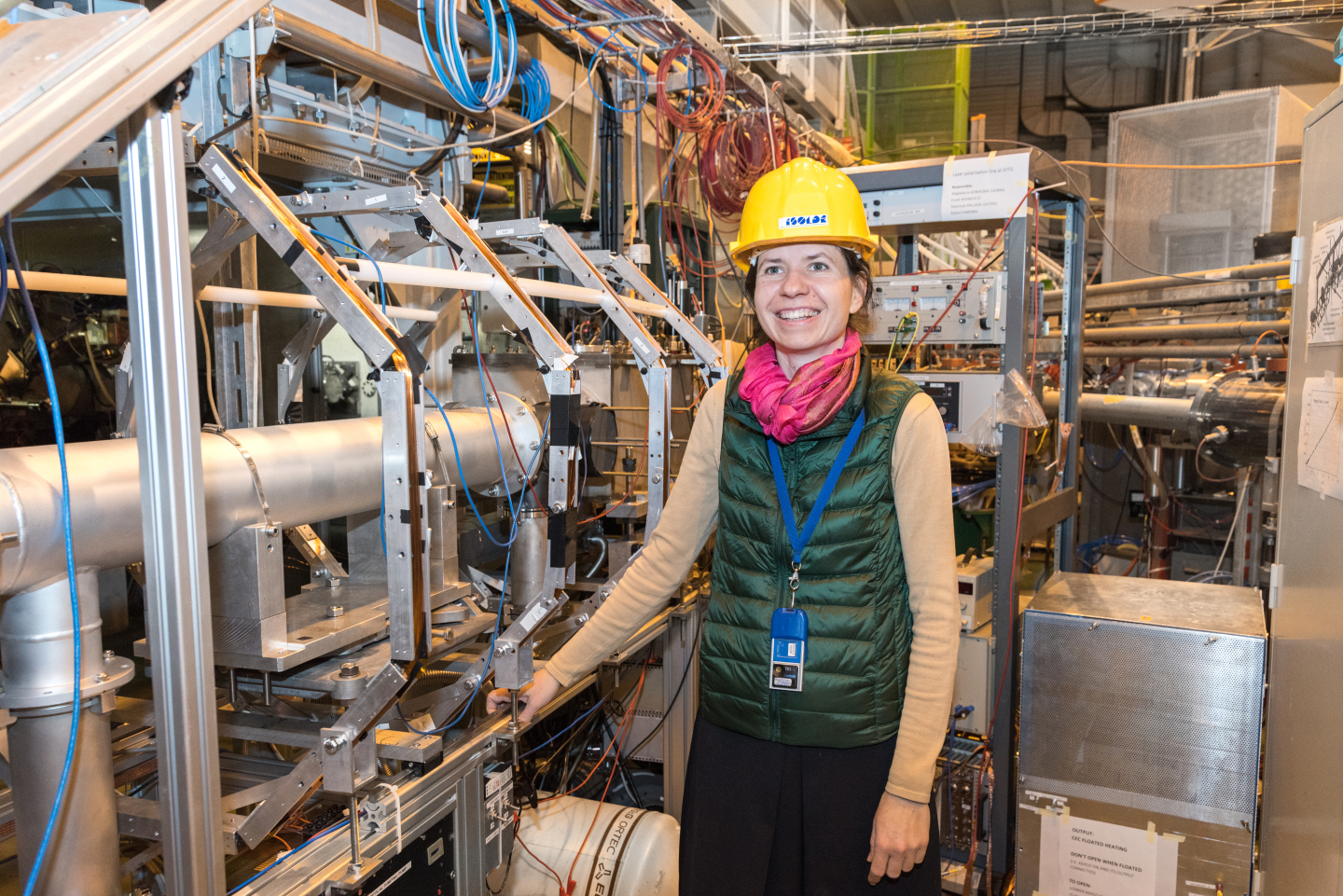Originality of projects, autonomy of action and willingness to take risks – this is what motivated Magdalena Kowalska, a CERN staff member at ISOLDE, to apply for EU funding at CERN. Not just any projects; her focus is on the ones that allow researchers to fully deploy their ingenuity. This year, the Polish scientist who spent over 20 years at the Organization, has been awarded a new grant from the European Research Council (ERC). With this, she has become the only one among her CERN peers to have received two such grants.
Magdalena's journey can be a good starting point for potential candidates to European projects. Unlike the projects that bring together a consortia of ten, twenty or even forty members on broad themes, ERC projects are much more flexible and highlight the innovative work of a small team of researchers. "This is one of the only truly bottom-up European programmes - one that gives voice to fundamental research and cross-disciplinary approaches," explains Magdalena. Familiar with interdisciplinary work through her role as ISOLDE's physics coordinator and scientific secretary, she has been able to learn from the hundreds of annual users of the facility and in particular from the links between physics and biology.
Eager to open up to new horizons, Magdalena obtained her first ERC project back in 2015 to explore the use of unstable isotopes in nuclear magnetic resonance spectroscopy. Called BetaDropNMR, this “Starting Grant” project received sufficient funding to finance her salary as CERN LD staff, a post-doc, and PhD student with equipment funding from CERN and thus start building her own research team. "The main advantage of such funding is that it gives researchers a large degree of scientific freedom - this is particularly interesting for those working in large collaborations," she adds.
From one project to the next. In last April, she again got selected for an ERC grant. This time, it is PresOBEN, a fundamental research “Consolidator Grant” project looking at the detailed structure of unstable nuclei. Magdalena emphasises the intense preparatory work that led to this second success: “It is important to secure the foundations: to have a solid proof of principle via simulations or experiments, to build on recent publications and to demonstrate how the impact of past successes can be vastly increased by the funding. Above all, one must show that the project is original and risky but feasible, timely, and that you’re a unique person to carry it out”. Obtaining such funding is not a guarantee and a certain amount of imagination may be necessary to plan for contingencies, bring together partners with complementary expertise, and of course adapt the presentation for the selection panel.
ERC grants are not the only funding that have enabled Magdalena to move her projects forward. There are many seed-funding opportunities for CERN personnel such as the Knowledge Transfer Fund and the Medical Applications (MA) budget which help launch projects in their early phase. The latter enabled the GammaMRI project to have first results and, thus, get selected for funding under Horizon 2020's Future and Emerging Technologies, the programme's high-risk / high-gain funding scheme (now replaced by EIC Pathfinder). Magdalena is now also starting an MA project on an innovative Nuclear Magnetic Resonance technology (RD-ZULF-NMR).
From quantum-resistant cryptography to advanced robotics, from two-dimensional materials to extreme data mining, a dozen Horizon Europe calls have been identified by CERN’s EU Projects Office as of potential interest for the organisation. If you are considering EU funding for your R&D projects, please do not hesitate to subscribe to the “EU projects @ CERN” Newsletter, to register for the dedicated training and to contact the EU Office.
